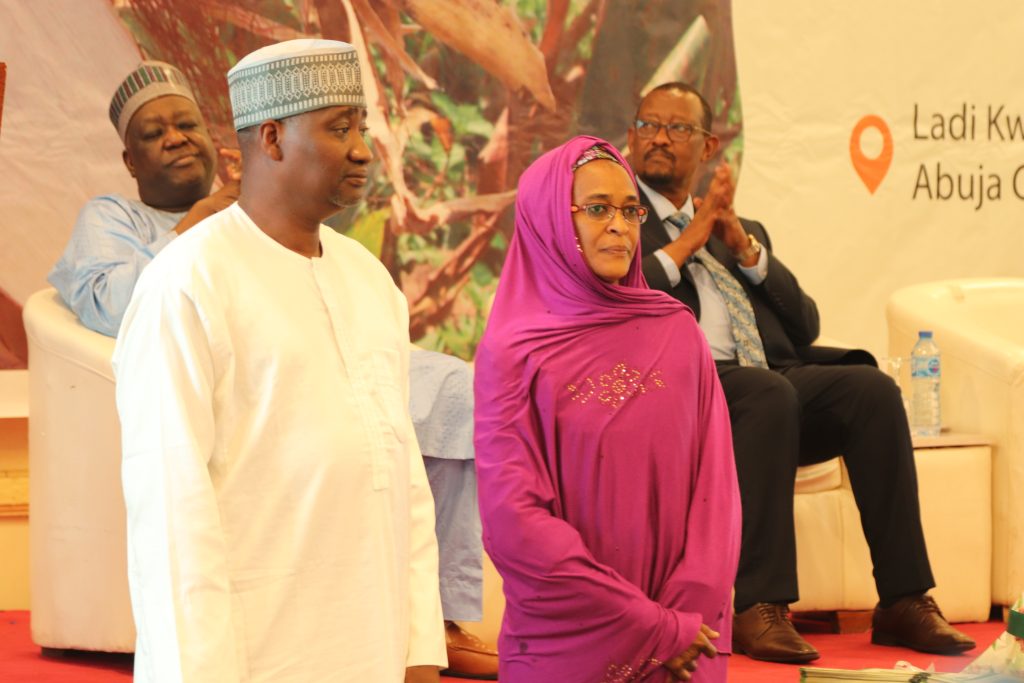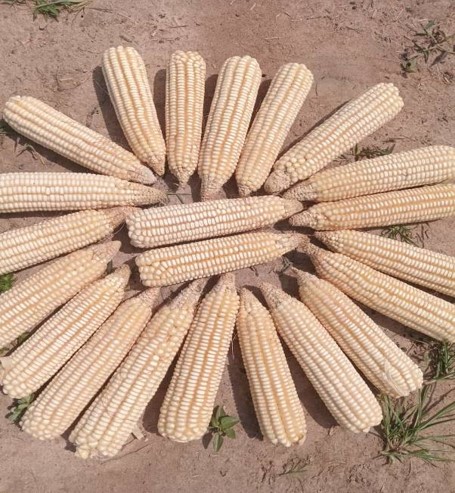Researcher says new varieties can help Nigeria save US$256m spent annually on maize imports
By Onche Odeh
African countries, especially those in the savannah region may have found some respite in their quest to rev food production and reduce import dependence to meet their local demands for maize, one of the most commonly consumed staple foods in the world, in the TELA Maize hybrids.
The four hybrid varieties of the food crop launched in Nigeria on Tuesday June 11 may have also offered African countries the opportunity of switching to becoming net exporters of the crop, which is consumed by no fewer than 300 million people.
According to Professor Rabiu Adamu, renowned Entomologist at the Institute of Agricultural Research (IAR) at Ahmadu Bello University (ABU), Zaria in Nigeria’s northern state of Kaduna who led the TELA Maize Project in Nigeria as Principal Investigator, the cultivation of TELA Maize aim to reduce Nigeria’s importation of pesticides to manage Stem borers and fall army worms, adding that it could save the country at US$256 million spent on importation annually.
Although the Savannah region of West and Central Africa sub-regions has been identified as having the highest potential for increased maize production and productivity due to the high solar radiation, low night temperatures and perceived low incidence of diseases, actual production has been constrained by recurrent drought, the preponderance of the Parasitic weed, Striga spp, low soil fertility and the invasion of farms by the insect pests, Fall Armyworm and Stem borer.
Studies have revealed that the West Central Africa savannah region experience an estimated annual average maize yield loss due to drought stress of 15%. It has also been found that maize yield can be reduced by as much as 90% if drought occurs from a few days before tassel emergence to the beginning of grain filling period.
Similar devastation has been established for insect pests, which is said to affects 46% of global maize growing area and 60% of maize loss is in the tropics.

Adamu who spoke on the promises of the hybrid varieties, which were officially launched in Nigeria on Tuesday June 11, said the 4 TELA® hybrids, namely SAMMAZ 72T; SAMMAZ 73T; SAMMAZ 74T; and SAMMAZ 75T have demonstrated outstanding characteristics.
“High adoption of these insect-resistance Maize hybrids that are drought tolerance will have, coupled with good agronomic practices, significant impact on the lives and livelihood of Nigerian Small and Medium Scale farmers.” Adamu said in his presentation.
TELA Maize Project was initiated as public- private partnership to ensure Africa grows and adopt drought and insect protected Maize varieties. The high yielding varieties, developed by scientists at IAR in partnership and collaborations with AATF uses modern Biotechnology to breed transgenic varieties that confer resistance to major pests such as stem borers and Fall army worm and moderate drought tolerance.
AATF Executive Director Dr. Canisius Kanangire, in his remarks during the Launch of TELA Maize Varieties in Nigeria said the new maize varieties offer several benefits.
“With their resistance to pests and tolerance to drought, TELA Maize varieties will boost maize yields, providing more food and income for farmers in Nigeria. These varieties will reduce pesticide use which will lower the overall cost of maize production, making farming more profitable and sustainable,” – kanangire.
He said the launch of TELA Maize varieties in Nigeria heralds a new era for agricultural innovation and resilience in Nigeria and Africa.





